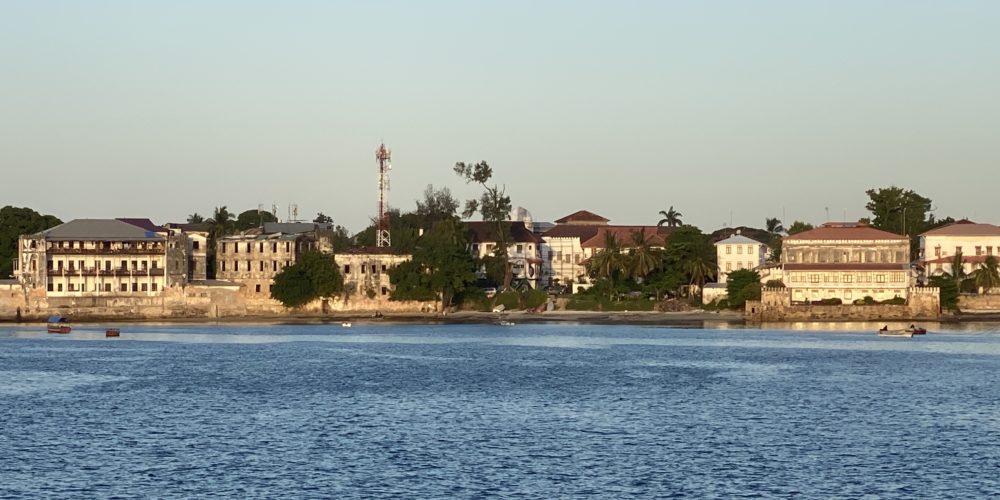A Nobel Prize of great meaning

Abdulrazak Gurnah won the Nobel Prize for Literature last week, and it meant a great deal. He is only the fifth person of African birth to win the prize, and the closest to our own shores—his birthplace is Zanzibar, that captivating, mysterious island across the waters from Kenya.
Why is this such a big deal? First and foremost: the writing. Without hesitation, I would list Abdulrazak Gurnah as one of my favourite five contemporary writers—alongside two other Nobel laureates, Kazuo Ishiguro and Patrick Modiano. The remaining two slots would be up for debate, but those three are taken.
Abdulrazak Gurnah spent his youth in the Spice Islands before being forced to flee— leaving his parents behind—after the bloody revolution of the 1960s visited purges and calamities on so many. He arrived in England in 1968, a virtually penniless refugee. His works always reflect this history; he writes both beguilingly and cuttingly about the migrant experience.
Consider these lines from his standout classic, By the Sea:
“I live in a small town by the sea, as I have all my life, though for most of it it was by a warm green ocean a long way from here. Now I live the half-life of a stranger, glimpsing interiors through the television screen and guessing at the tireless alarms which afflict people I see in my strolls. I have no inkling of their plight, though I keep my eyes open and observe what I can, but I fear I recognise little of what I see. It is not that they are mysterious, but that their strangeness disarms me…I am fascinated by their faces. They jeer at me. I think they do.”
I have quoted that paragraph ever since I first read it; I’m sure I will continue to do so all my life. In there you have what great fiction is all about: beautiful sentences; surprising truths; hidden wisdoms.
To read Abdulrazak is to be immersed in the shouts of fishermen, the aromas coming from street vendors, the intrigues of politicians, the greed of humans. It is also to experience the wrenching that happens when all of that is left behind, perhaps forever—forced to live in a strange, forbidding place where one is made unwelcome, losing human dignity every day. They jeer at me. I think they do.
But there is more to Abdulrazak’s story than just his writing prowess. He may have arrived in England with nothing, but he got himself educated and pursued a life as a man of letters, retiring recently as the Professor of English at the University of Kent.
And now, in his twilight years, he has the grandest prize in all of literature.
Think about it. A humble beginning in a small, remote island. Upheaval and adversity, resulting in exile. No resources, no networks, and no benefactors in an unwelcoming new country. And still this man went on to carve out a life of dignity, status and achievement for himself. Now, the whole world is flocking to him to read his books.
If that’s not inspiring, what is? I think of my own privileges and I shrink in shame. To be able to deal with one’s life and rise above it is indeed the greatest human achievement. Too many of us don’t appreciate the head-starts bestowed on us and the ease with which we can navigate the twists and turns of life. Equally, too many of us allow our preconditions to predefine us, and remain refugees in our own lives.
A good life requires grit and gumption, to deal with misfortune, reversal, and loss. Our beginnings need not be our endings; the intervening chapters are written by us, not by some all-powerful, external storyteller.
Professor Gurnah sometimes equates the condition of the unwanted exile to a feeling of being weightless in the world: that migrants often have no substance of their own; they are pulled hither and yon by forces outside of them, bigger than them. To lose weight in the world is to lose agency and dignity.
And yet. I listened to Abdulrazak being interviewed by the BBC after his Nobel award. He was asked whether he is fine with writing about colonialism and its after-effects not in Kiswahili but in English—the language of the coloniser. The good professor replied along these lines (I paraphrase): No sir, English is no longer just the language of the English. The colonial adventure succeeded so well that English was given to and imposed on the colonised. Like cricket, which may have originated in England but is now played by others so well that sometimes the English struggle to participate fully, English belongs to us as much as it does to you, and we shall do with it what we wish.
That confident voice is one of someone who found his weight in the world.
(Sunday Nation, 17 October 2021)

Buy Sunny Bindra's book
UP & AHEAD
here »
Popular Posts
- What is a nation?June 30, 2024
- To be a great leader, think like a farmerJuly 21, 2024
- Don’t be surprised by surprisesJuly 14, 2024
- It takes mavericks to change the gameJuly 7, 2024
- Why we should all be activistsJune 16, 2024















